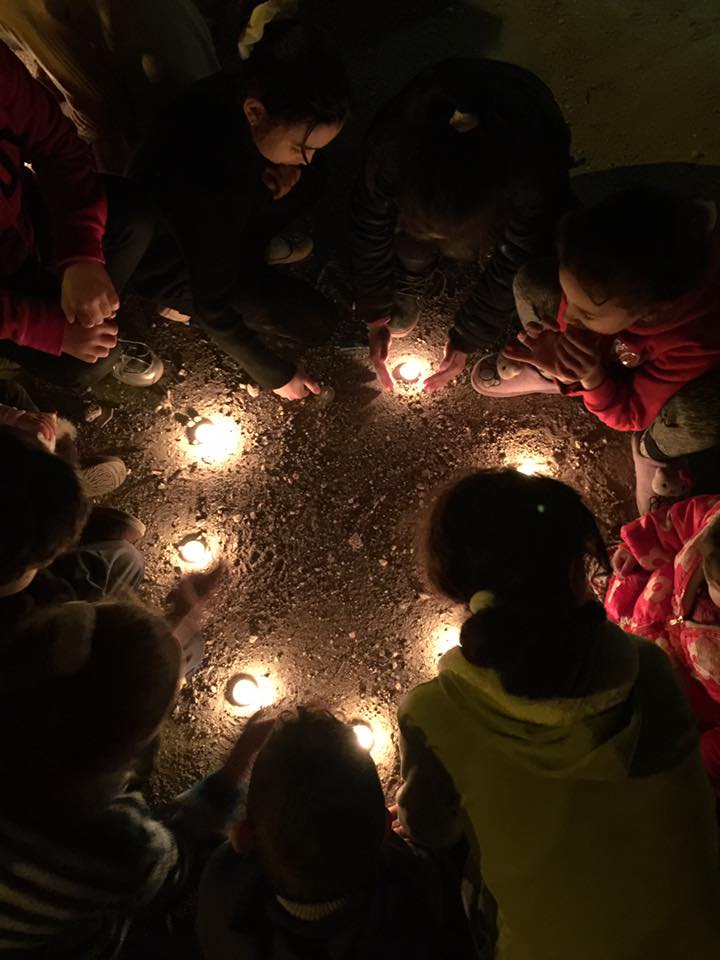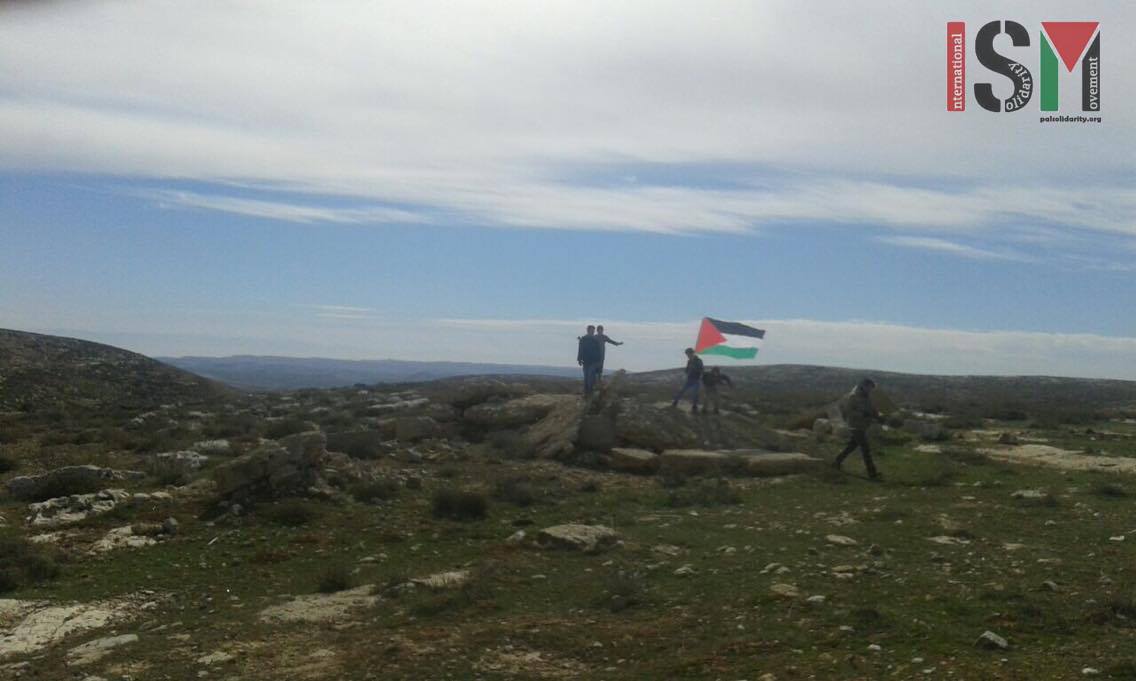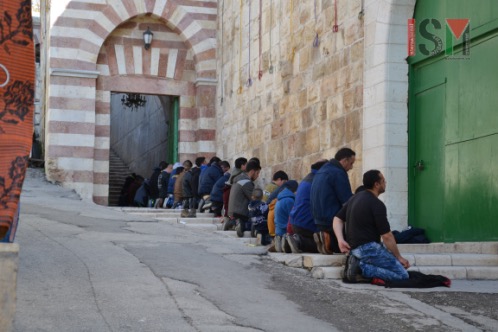Category: Hebron
-
Khalil children: a candlelit vigil for the 1994 massacre
20th February 2017 | International Solidarity Movement, al Khalil team | Hebron, occupied Palestine On February 19th children from al Khalil came together at dusk in the old city to light candles to commemorate the 29 Palestinian men who died in the massacre at the Ibrahimi mosque here in al Khalil in 1994. They sang…
-
Non-violent action in al-tuwani
17th of February, 2017 | International Solidarity Movement, al-Khalil team | South Hebron Hills, Occupied Palestine Saturday 4th a group of villagers from Al Towani, South Hebron Hills, held a non-violent demonstration against settler violence and illegal settlement expansion, which affects their village. This non-violent demonstration was met with harassment from residents of the illegal out-post…
-
Israeli forces are solidifying their grip on Hebron
17th February 2017 | International Solidarity Movement, al-Khalil team | Hebron, occupied Palestine On February the 3rd 2017, a new permanent stone checkpoint in front of the Ibrahimi mosque in occupied Hebron, was brought into use. The checkpoint, which has been under construction since July 2016, was thus inaugurated just one month before the 23rd…



